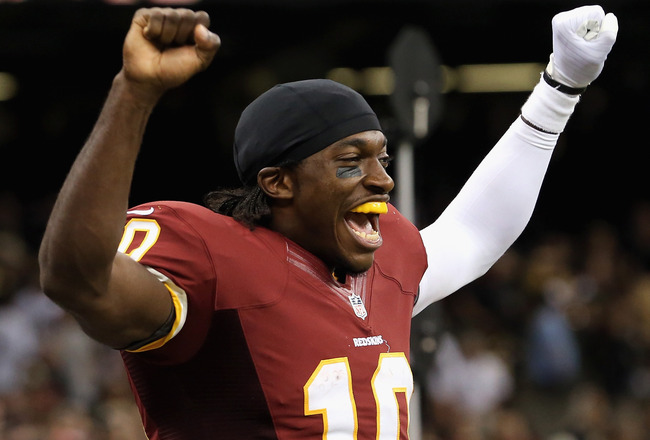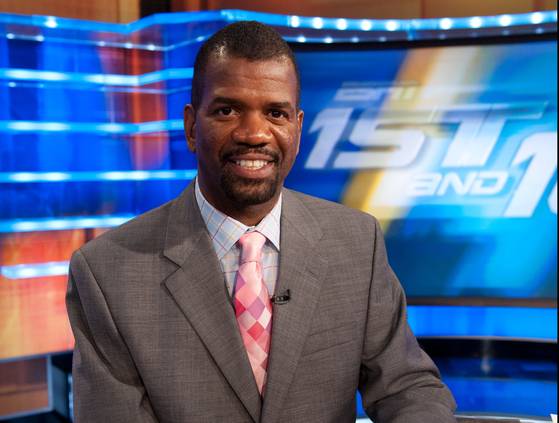 |
| Should RGIII own his 'blackness'? |
I've never been a fan of ESPN's Rob Parker's opinions on First Take (recently suspended by ESPN for comments made about Washington Redskins quarterback Robert Griffin, III), but as a young black journalist, have always appreciated his and Stephen A. Smith's presence on the show. The main reason for this is because I am the type of person that owns my 'blackness'. When I was younger, I'll admit, there were parts of me that wanted to distance myself from it (full disclosure, I am the son of Nigerian immigrants. I was born and raised in America. English is the only language I know and African-American culture is what I most identify with. The complexities of growing up with this stigma is more than enough for healthy discourse at a later date). I felt like being black and being a journalism major/ sports writer wasn't a good fit, and being that type of person that took a pro-black stance on most issues would be a detriment to my future writing career. So when I see guys like Parker, Smith, Jason Whitlock, Billy Rhoden, etc. have prominent roles within the field yet maintaining their stance, it gives me hope that I can be Ses Nomishan aka Mr. AllDayEryDay and write about topics in a manner that I feel comfortable with rather than conforming to a certain protocol to 'appease the masses', as Stephen A. would say. That said, I understand what Parker was trying to intimate when voicing his opinions/frustrations with Robert Griffin, III on First Take.
 |
| Parker's controversial comments spark meaningful dialogue. |
His narrative of RGIII allegedly being a
'cornball brother' or not 'down for the cause' came off as being simple-minded and derogatory at best. Most critics of Parker's comments will ask what if anything does having 'dreadlocks' or a white girlfriend have anything to do with being black? This type of sentiment exploit the problems with racial unity as it pertains to blacks much more than they do anything to solve them. The real issue at hand (what Stephen A. later eluded to) is RGIII's continual distancing of himself as being looked at as 'black'. It's something about today's athlete that Rhoden chronicles in his book
Forty Million Dollar Slaves; the lack of a connection between the modern athlete and the black community and the social ramifications of that.
What these major black athletes should realize is, whether they like it or not, is that the reason that they are there is because someone before them paved the way for them to be there, and in essence, they too pave the way for future black athletes that hope to reach the level they currently attain. To come out and take pride in something when you are in a prominent position, you have the power to induce and strengthen the morale of those that share in that pride with you. When it comes to minority races in particular--where predecessors have fought against discrimination and suffered from inequality-- seeming lack of pride or appreciation for one's predecessors is viewed as a giant slap in the face, or flat out Uncle Tommery. Therefore, Parker was merely trying to illustrate for the outsider what RGIII's cumulative racial 'denials' amount to in the eyes of some blacks. His speech was just flat wrong.
Being a 'Carlton' or 'cornball' doesn't make a person 'whiter'. You're still black. You will always be viewed as black to the outsider no matter how un-intimidating or articulate you are. So take a stand, black athlete. Pay homage to those that came before you while simoultaneously playing a part in boosting the morale of a people that have for many years have had little to take pride in.



No comments:
Post a Comment